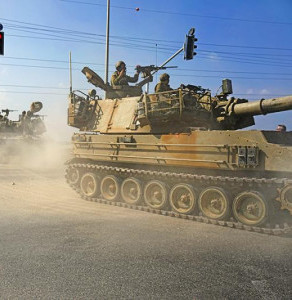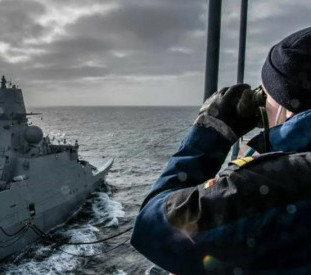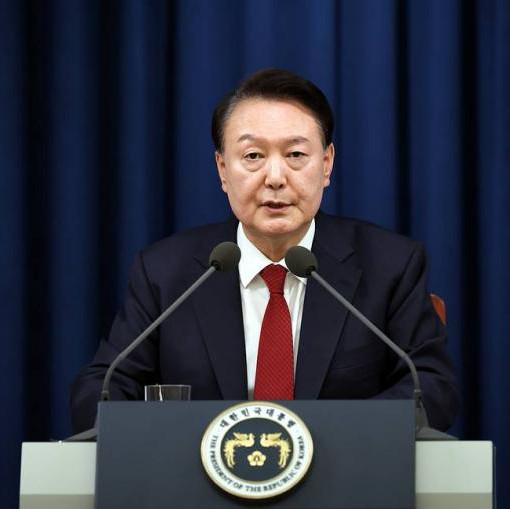The main leitmotif of the letter was accusation against Russia of non-compliance with treaty obligations undertaken by it at the OSCE Istanbul Summit in November 1999. Tnen Moscow on a voluntary basis undertook to withdraw its troops from Moldova in the context of the adapted Treaty on Conventional Forces in Europe (CFE).
The Russian troops located on our territory are not only a permanent source of threat to security of the Republic of Moldova, but they also feed Transnistrian separatism, so long as the Tiraspol separatist leaders see in the presence of Russian troops stationed in the region, the moral, political and material support for their actions. Consequently, the Russian troops in Moldova seriously undermine international community“s efforts aimed at peaceful settlement of the conflict, Mihai Ghimpu writes in his letter.
Having said that he did not specify what efforts exactly of the international community to settle the Moldova and Transnistrian conflict he means. Currently, besides the peacekeeping operation conducted under the auspices of Russia and the work of the Allied Control Commission, the only 5 +2 format negotiation is valid in the region (Moldova and Transnistria as parties to the conflict, Russia and Ukraine as guarantor states and OSCE as a negotiator, the EU and the USA as observers).
According to the agreements previously reached in the course of the Transnistrian conflict settlement, changes in the peacekeeping mission in Transnistria is only possible after the settlement of the conflict. It is noted in the joint declaration signed on March 18th last year in Moscow by the Presidents of Moldova - Vladimir Voronin, Transnistria - Igor Smirnov, and Russia - Dmitry Medvedev, the stabilizing role of the Russian peacekeeping mission in the region and appropriateness of its transformation into a peace guaranting operation under the auspices of the OSCE after the Transnistrian conflict settlement.
Also in the declaration signed on 17 May this year by the Presidents of Russia and Ukraine - Dmitri Medvedev and Viktor Yanukovich on the Transnistrian conflict settlement, they confirmed the significance of the Moscow Declaration of the Presidents of Moldova, Transnistria and Russia, as well as what concerns the prospects for transformation of the peacekeeping operation in the Dniester.
Currently the presence of Russian peacekeepers in the safety area of the Transnistrian conflict is based on the Agreement between the Republic of Moldova and the Russian Federation on the principles of a peaceful settlement of the armed conflict in the Transnistrian region of the Republic of Moldova , signed in Moscow on 21 July 1992 with the participation of the parties to the conflict. And the Russian armed force contingent situated in Transdniestria is engaged in safeguarding remnant ammunition depots, created during the Second World War, and that in 2000 began to evacuated. The process of ammunition evacuation from Transdniestria was interrupted on the insistence of the Transnistrian authorities due to a deep crisis in the Moldovan-Transnistrian settlement.
The peacekeeping operation is being carried out by a joint peacekeeping force, which includes 402 Russian servicemen, 492 Transnistrian, 355 Moldovan and 10 Ukrainian military observers.
As for the the Istanbul commitments as related to the evacuation of armament from Moldova, they were entered into by Russia in the context of the CFE Treaty, but had the Russian-Moldovan bilateral character and were carried out ahead of time in 2001: currently in Transnistria there are no weapons, which would be regulated by the CFE. Moreover, in July 2007, Russia imposed a moratorium on observance of the CFE due to the fact that the treaty had not been ratified by any of the NATO member states.
On the eve of publication of M.Ghimpu“s letter to NATO leaders, Minister of Foreign Affairs of the PMR Vladimir Yastrebchak commented in detail on recently intensified attempts of Moldovan authorities re-raise the issue of the withdrawal of Russian peacekeepers from the conflict zone. Yastrebchak held a briefing in Tiraspol to representatives of Trans-Dniester mass media and the ones accredited in the republic.
According to Minister of Foreign Affairs of the PMR Vladimir Yastrebchak, Kishinev should be glad that the property of the former 14-th Army of the Soviet Armed Forces is guarded by Russian servicemen, and had not passed into the ownership of Transnistria, in accordance with the documents of 1992 in the time of a disintegration of the USSR.
If one believes in the Republic of Moldova that there is no legal and political reasons for the presence of OGRF (Operative Group of Russian Forces), then they would have to agree to a territorial principle of separation of the property of the former Soviet army, he said early November this year.
Yastrebchak reminded that the provisions of the Agreement on the principles of a peaceful settlement of 1992 provides for not only the presence of peacekeeping forces, but also the units of the former 14-th Army.
There is a political aspect to this problem, one prefers sometimes to ignore using the legal one as a cover, but they should be taken in conjunction, the Minister emphasized. The retention of peacekeepers units and those of the former 14-th Army is closely linked to political settlement, said Yastrebchak, reminding that in 2003 part of trainloads of Russian armements was however evacuated from the region.
At this stage, issues of property evacuation or its disposal - is solely a matter of bilateral cooperation between Transnistria and Russia, which should concern our colleagues from the Republic of Moldova to a small degree, as long as they have a lot of internal problems, said Transnistria's Minister of Freign Affairs.
If in Moldova there are people bold enough to really insist on the withdrawal of Russian peacekeepers, let them introduce into the parliament an initiative to denounce the Agreement of 1992. In this case, we will react without fail, said Vladimir Yastrebchak. He noted that in Moldova one is very well aware that e.g. in the Dubossary district the line of demarcation of the parties to the conflict did not pass along the Tiraspol-Dubossary route, as now, but jutted into the territory of the Moldovan enclaves.
As soon as the peacekeepers have left, the Transnistrian side will get the legal right to move to the line of demarcation, said the minister. - So in whose interests is the dismantling of the peacekeeping operation?"P









